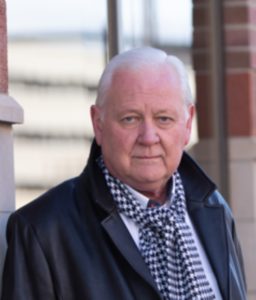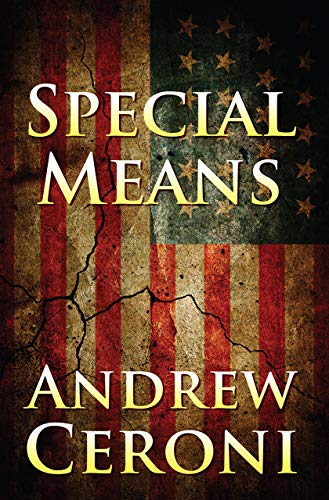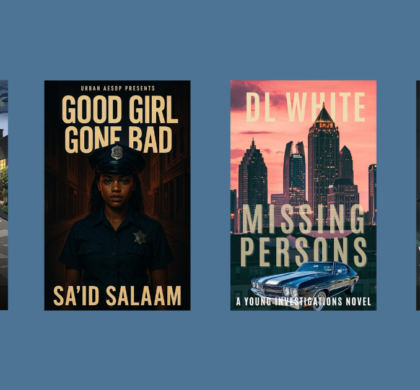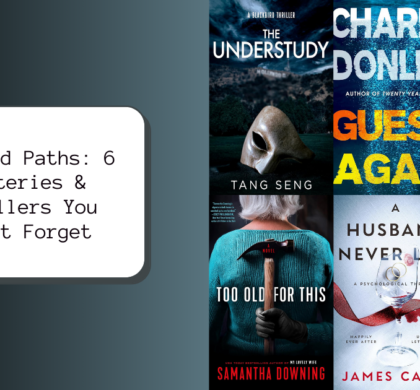Interview with Andrew Ceroni, Author of Special Means
12 May 2020
What can you tell us about your new release, Special Means?
Given my training with the FBI, BNDD/DEA, and CIA coupled with my career as a special agent focused in Title 18 U.S.C. Chapter 37 espionage investigations, counterespionage and anti-terrorism operations, I am most comfortable using that experience to write thrillers. For Special Means, it was the climate in the United States today that stirred me to write this novel. First, the street gangs in our larger cities…black gangs, Hispanic gangs, Asian Triads, Albanians and Russians–are growing out of hand. They have become nearly too much for local, state and federal law enforcement to keep in check. American citizens are victimized every day across this country. Rights to life, liberty and the pursuit of happiness appear to many citizens to be dwindling. Second, the political climate in the nation today between political parties is as toxic and venomous as I have seen in my lifetime. The plot of Special Means presents what turns out to be a wrong-headed solution to the problem of gangs that like a cancer, grows to threaten the security and constitutional stability of the nation itself.
What or who inspired you to become an author?
I was a voracious reader as a youth. I found the works of James Fenimore Cooper, Kenneth Roberts, Rudyard Kipling, Isaac Asimov, Marjorie Kinnan Rawlings, and Edgar Rice Burroughs thrilling. I myself actually began writing short stories and some poetry as early as 12 years old. I had a portable Smith Corona typewriter I had purchased from a Montgomery Ward catalogue with money I earned working at a series of large fruit stands in the Mid-Hudson Valley of New York. By the fifth grade, teachers were encouraging my writing and this inspiration from teachers and professors continued through high school and college. Years later, a suspect in an espionage investigation I was conducting in Europe had such a tragic family background that afterward, I told myself if I ever wrote a book, his character would be in it. That book was my first, Meridian. I had to have the manuscript reviewed and approved for publication by the Department of Defense Public Affairs. After I left both the federal investigation and corporate worlds, I decided I would endeavor to write novels.
What’s on your top 5 list for the best books you’ve ever read?
1.) James Fenimore Cooper’s Last of the Mohicans
2.) Ernest Hemingway’s For Whom the Bell Tolls
3.) John Steinbeck’s The Grapes of Wrath
4.) Thornton Wilder’s The Bridge of San Luis Rey
5.) Marjorie Kinnan Rawlings’ The Yearling.
Say you’re the host of a literary talk show. Who would be your first guest? What would you want to ask?
David Baldacci would be my first guest. I would ask him, “Mr. Baldacci, how did you come to decide that you wanted several separate, diverse series of novels led by different protagonists? What drove you in that direction…building different lead characters with dissimilar backgrounds and distinctive skill sets? Is there one series, one protagonist that you are drawn to most? If so, why do you think that is?”
What’s your favorite thing about writing?
Eleanor Roosevelt once wrote, “The future belongs to those who believe in the beauty of their dreams.”
Writing is like that – a quiet, enriching activity where one can script a narrative, a tale, a story from their nighttime and waking dreams into a living, breathing reality. I have found in the process of creating the major characters of a novel with distinctive traits that fairly soon, I have to struggle too keep up with them. I don’t have to decide what their response is to a question, they are actually speaking and I am the recorder of their discourse. It’s sometimes a surreal yet also pleasant, fulfilling experience.
What is a typical day like for you?
I’m an early riser. First thing, it’s checking emails on the computer. Then off to Starbucks for coffee and chit-chat with the people there, the regulars. They’re a diverse bunch and I’m a people-watcher. I suppose that comes from my investigative background. Then back home. No writing early in the day. It takes hours for the creative juices to begin to flow, and an occasional day, it never happens. Lunch. Talking with a neighbor. Writing. More writing. After dinner and kissing the wife who heads up to the sanctuary of our bedroom, it’s usually a movie for me and most often an action or adventure movie. Then, a sip of cognac, and…writing again.
What scene in Special Means was your favorite to write?
I don’t want to give the farm away here. However, a well-known developmental editor in New York who also worked in Hollywood as a screen script editor on Driving Miss Daisy and Mystic Pizza once told me that I write ‘action’ scenes very well. There are several action scenes in Special Means…New Mexico, Denver and Washington DC, including at The White House. It is the action scenes I most enjoy scripting.
Do you have a motto, quote, or philosophy you live by?
Fleet Admiral William F. “Bull” Halsey, Jr., the commander of the U.S. Navy 3rd Fleet in WWII, once said, “There are no great men. There are only great challenges which ordinary men, by force of circumstance, must rise to meet.” I have always liked this quote and have taken it to heart. Great challenges, not great men. It keeps me humble.

Andrew Ceroni is the author of the new book Special Means.
Connect with Andrew
Author Site
Facebook
Buy The Book
Sign up for our email and we’ll send you the best new books in your favorite genres weekly.



